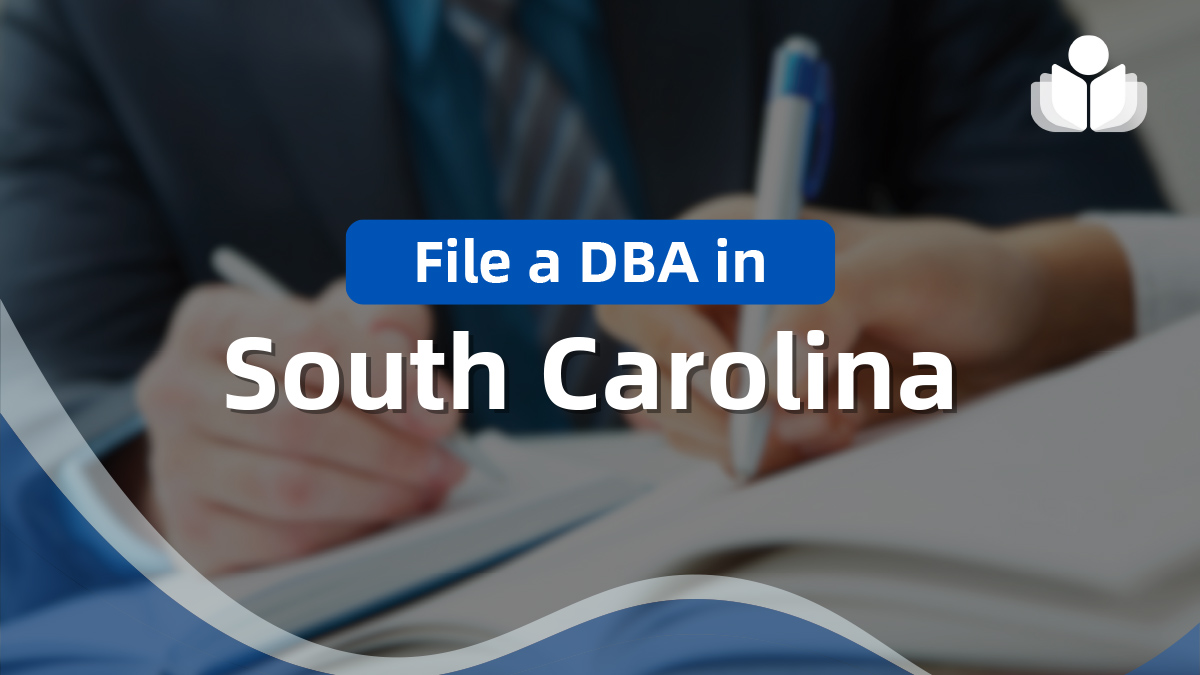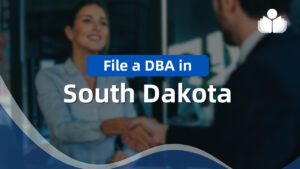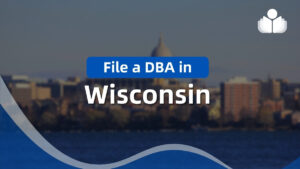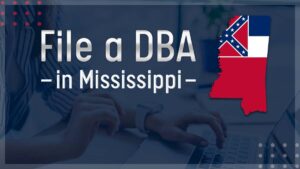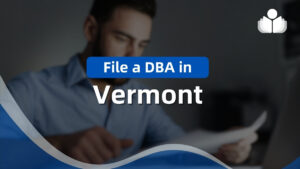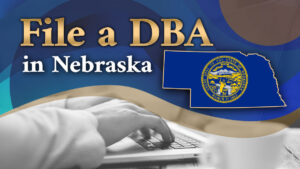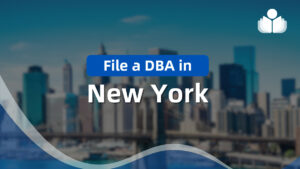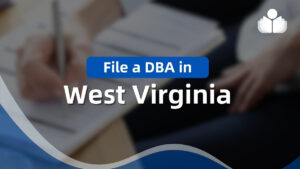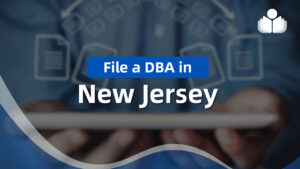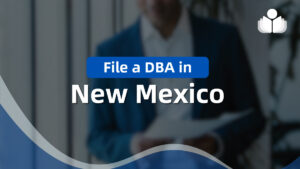Curious about why a DBA registration matters in South Carolina and how to get it done? You’re in the right place. A DBA, which stands for “doing business as,” allows you to operate your business under a different name for purposes like marketing, sales, and legal dealings.
It might be called a fictitious name, assumed name, or trade name in various areas. Remember that a DBA isn’t a formal business structure like a Limited Liability Company (LLC).
It comes with different benefits, such as legal protections or tax advantages. Many entrepreneurs find that forming an LLC in South Carolina offers stronger support for their business.
What Is a South Carolina DBA?
A South Carolina DBA, also known as a doing business name, is an alternative title to your official business name. Entrepreneurs can use a DBA just like their legal business name. Using a DBA allows for various practical applications, including
- Company merchandise
- Opening a dedicated business bank account
- Setting up payment systems
- Writing checks to vendors
- Advertising
- Social media accounts
DBAs are highly favored by individuals who operate as sole proprietors because the legal business name for a sole proprietor is typically their own first and last name. For instance, if a sole proprietor named Joseph Stafford runs a business that builds websites, using a DBA name like “Elite Web Solutions” adds an element of professionalism and descriptiveness that surpasses simply using Joseph’s personal name.
Joseph can also use a DBA to send invoices to clients, distribute business cards, or showcase her skills on social media platforms such as Instagram.
Remember that while having a DBA provides you with an alternate business name, it doesn’t create an entirely new legal entity. You’ll not file taxes under your DBA’s name and therefore will not require a separate Employer Identification Number (EIN), or for most sole proprietors, Social Security Number (SSN) specifically for your DBA.
Unlike formal entities like Limited Liability Companies (LLCs) or corporations that offer personal asset protection in case of lawsuits or bankruptcy filings, using a DBA doesn’t provide any form of personal asset protection for you or your business partners.
Do I Need a DBA in South Carolina?
In South Carolina, it isn’t mandatory for sole proprietorships, general partnerships, corporations, LLCs, LPs, LLPs, or out-of-state companies that conduct business in South Carolina under a different name than their legal name to submit a DBA filing to the Secretary of State. However, file a DBA for trademark protection purposes. This can be beneficial and wise decision for these entities operating in the state of South Carolina.
Is Registering a DBA Required in South Carolina?
Using a DBA (Doing Business As) in South Carolina varies depending on the type of business entity. Sole proprietors, general partnerships, LLCs, and corporations can use a DBA with no need to register it with the state.
However, they can register it at the local level if desired. According to S.C. Code § 33-42-45, both foreign and domestic Limited Partnerships are required by South Carolina law to register an assumed name if they choose to use one.
Foreign LLCs, corporations, and non-profits must also register a DBA with the state if they plan on operating under a business name that differs from their legal name. This registration requirement ensures clarity and transparency for businesses operating in South Carolina.
Why Hire a Professional Service to File a DBA in South Carolina?
Successfully navigating the DBA filing process in South Carolina requires meticulous attention to detail and strict adherence to specific steps. Each of these steps is crucial for a smooth and prosperous registration. Avoid any oversights during these procedures, as they could lead to the rejection of your application or even more severe consequences.
The authorities in South Carolina have the power to impose fines or even shut down your business if you incorrectly use a name in legal or business contexts.
Professional services can help alleviate the concerns and uncertainties that come with the entire DBA process. With their extensive knowledge of South Carolina’s unique requirements, they can assist you in choosing an optimal name before initiating the paperwork. These firms offer a range of services, including LLC filing, which proves invaluable as your business expands.
After conducting thorough research, we have identified the top professional services that are specifically tailored to meet your DBA requirements in South Carolina:
How to Get a DBA in South Carolina
In South Carolina, there’s no official process for registering DBAs with the state. Therefore, obtaining a DBA is as simple as choosing a name and immediately using it. Before you use your chosen DBA, several factors must be considered.
1. Check to See if Your DBA Name is Available
To determine if the name you desire is being used by a registered business in South Carolina, use the Business Name Search provided by the state. As DBA names aren’t officially registered with the state, it would be wise to conduct a search engine query to ascertain whether another South Carolina enterprise is using your desired DBA or something similar.
Conducting research on trademarked names at the state level is also recommended. This can be done by exploring South Carolina’s online database for Trademarks and Service Marks. Conducting a federal trademark search through the Trademark Electronic Search System (TESS) should also be considered.
2. Follow South Carolina’s Naming Guidelines
Even though the Secretary of State in South Carolina doesn’t keep records of DBAs (Doing Business As), ensure that your chosen DBA name adheres to best practices. Your name must avoid the following:
- Select a business name that has been officially registered in the state
- Avoid incorporating words that imply a government affiliation, such as “police” or “fire department,” in your Doing Business As (DBA) name
- Incorporate terms or abbreviations that show a corporate or LLC structure, such as “Inc.” or “LLC,” only if your business is structured as such
3. Get a Local Business License
In many instances, you can officially register your DBA (Doing Business As) by incorporating it into your application for a business license at the municipal or county level. Contact the county clerk’s office to inquire about any additional requirements for registering a DBA.
Most businesses can register their DBA with either the city or county clerk’s office that corresponds with their place of operation. For instance, if your business is situated in Myrtle Beach, you must complete an Annual Business License Application from Horry County and a separate Business License Application from the City of Myrtle Beach.
You’ll need certain information on hand to successfully submit most license applications.
- The legal name of the business
- DBA
- Type of business activity (ex: plumbing)
- Mailing address
- Physical address of the business
- Business type (LLC, corporation, sole proprietor, etc…)
- Business start date
- Contact information (email, phone, fax)
Although it isn’t mandatory to include your DBA (Doing Business As) on your license applications, it’s recommended to have it documented. This ensures that your legal business name and DBA will be listed when your license is granted. Having your operating name officially recognized adds professionalism to your business.
4. Register With South Carolina’s Department of Revenue
In South Carolina, there’s no official registration process for a DBA (Doing Business As) name. You can still include your legal business name and DBA on the state Tax Registration Application in section 3. This application is necessary for most businesses to collect state sales tax.
Once the Department of Revenue in South Carolina approves your application, they’ll issue a tax certificate that includes your legal business name and DBA name. Note this certificate doesn’t register your DBA with the state. However, it provides protection for your business by establishing a stronger claim to the name if someone else attempts to use it without permission.
5. Use Your DBA
You can utilize your DBA before including it on your license applications, but now it’s legally documented where you conduct business. Feel free to incorporate your DBA on social media platforms, business cards, point-of-sale systems, business bank accounts, and other relevant areas.
Best DBA Filing Services to Register Fictitious Name in South Carolina – SC DBA
Discover the top-notch options available for registering a make-believe name in South Carolina.
Bizee (Previously Incfile)

No matter your business type, Bizee provides a step-by-step guide to filing a DBA in South Carolina. Known as an “assumed business name,” you simply provide your company’s information and receive a quote for your new fictitious name. Bizee handles all the paperwork and hurdles involved in the registration process.
Their services extend well beyond South Carolina DBAs. More than 800,000 business owners have relied on Bizee’s features, like LLC and corporation formation, securing Employer Identification Numbers, and setting up a registered agent. They simplify compliance and provide thorough business support.
BusinessRocket

For those seeking to register a Doing Business As (DBA) in South Carolina, BusinessRocket is an invaluable resource. This platform is specifically designed to assist entrepreneurs and business owners, offering them a seamless and user-friendly experience.
By utilizing its online tools and comprehensive guidance, BusinessRocket simplifies the often intricate paperwork involved in DBA registration in South Carolina.
The primary goal of BusinessRocket is to streamline the entire process by guiding users through the necessary legal requirements while ensuring that their chosen business name remains unique and adheres to South Carolina regulations.
With features including document preparation and filing help, BusinessRocket facilitates a smooth DBA registration process, enabling individuals to establish their presence in South Carolina with ease.
Northwest Registered Agent

Northwest Registered Agent is a reliable choice for various legal services, including DBA filings in South Carolina. As a registered agent service, they provide businesses with a physical address in the state that meets all the requirements for operating under an alternate name.
Besides DBA filings, Northwest Registered Agent offers other compliance services such as annual report submissions and mail forwarding. This approach helps businesses stay in good standing with the state and eases administrative burdens for business owners, allowing them to concentrate on growing their enterprises.
ZenBusiness
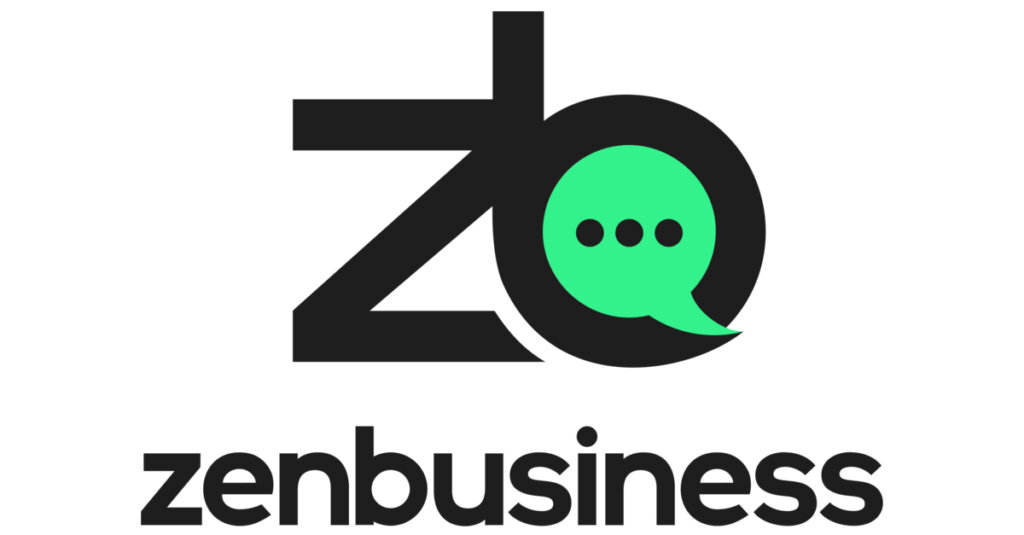
ZenBusiness is a comprehensive business services platform that supports entrepreneurs at every stage of their journey, including filing a DBA in South Carolina. With its focus on simplicity and affordability, ZenBusiness provides an intuitive online platform that guides users through the necessary steps for registering a DBA in South Carolina.
This service goes beyond checking name availability. It also prepares the required documentation and submits filings to the relevant authorities in South Carolina.
ZenBusiness offers ongoing help with compliance matters, making it an invaluable resource for entrepreneurs who want a hassle-free and compliant way to establish their business identity in the state.
How Much Does a DBA Filing Cost in South Carolina?
Sole proprietors and partnerships
The cost of a DBA in South Carolina for sole proprietors and partnerships varies depending on the county where you register your assumed business name. There may be additional expenses associated with hiring a notary public.
LLC, corporation, or LLP
For LLCs, corporations, and LLPs, the cost of DBA is $10. It’s necessary to renew your fictitious business name in South Carolina every five years, which incurs a fee of $10.
DBA vs. LLC in South Carolina
Although LLCs can use DBAs to operate under a different name, they don’t provide the same legal protections as an LLC. Unlike a DBA, an LLC is a legitimate legal entity that offers liability protection to business owners in the event of lawsuits or bankruptcy.
When you register an LLC with the state, it establishes a legal separation between the business and its owners (referred to as members). If someone decides to sue an LLC, they will sue the entity itself rather than targeting individual owners. This separation ensures that personal assets belonging to LLC owners aren’t used to settle any outstanding debts.
Sole proprietors and general partnerships may have less administrative work and lower filing fees. However, they lack protection in case of lawsuits because, legally speaking, their businesses are considered extensions of themselves. Establishing an LLC is strongly recommended if you desire legal protection for your business interests in South Carolina.
File a DBA in South Carolina – Frequently Asked Questions
If you’re still unsure about the process of filing a DBA in South Carolina, keep reading to discover the information you’re looking for.
Conclusion – File a DBA in South Carolina
Our comprehensive 5-step guide will help you effortlessly navigate the DBA filing process in South Carolina. For an even smoother experience, you can rely on Bizee, a trusted service that simplifies the entire DBA filing procedure.
Let Bizee be your strategic partner to shape and strengthen your business identity. You’ll save time while ensuring precision at every stage of registration. In South Carolina, you can register as many DBAs as needed, but each must undergo its own approval process.
 Sections of this topic
Sections of this topic
